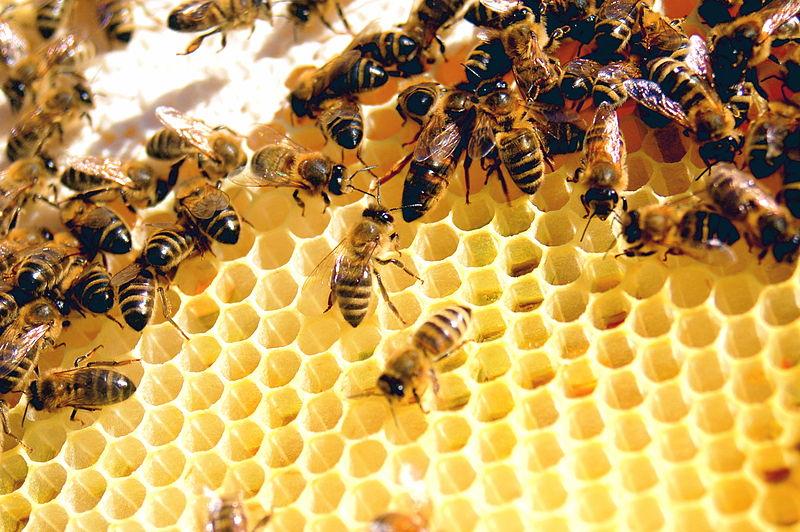Wandschneider: Saving the bees requires changes
The results of a bee’s work are all things that both humans and animals need in order to survive. Without the help of bees, life would almost be nonexistent.
February 25, 2014
They are small, fuzzy, yellow and black striped, and let’s just say you don’t want to make them angry. We know these small creatures as bees. It is easy to think of them as having a minor, insignificant role in the grand circle of life. In all reality, a bee’s job is much more valuable than what one may think.
The life of the bee circles around one simple task, pollinating plants. By flying from plant to plant to gather nectar for honey, the bee picks up some pollen along the way. When it arrives to a new plant some of that hitchhiking pollen falls of onto a new plant. Pollen is the reproductive agent of a plant; this allows the plant to produce either a flower or what we know as food.
So, when it is brought to our attention that the bee population is severely declining, people are usually to quick to jump on the bandwagon of “so what?” It turns out there are many replies to the so what thinkers of the world. Without pollination and the creatures that do it, life, as we know it, would be completely different.
The less number of bees that are in existence, the less plants that get pollinated. If a plant does not get pollinated, the plant does not reproduce. With no reproduction, the fruit bearing part of the plant does not happen. Now, there aren’t any seeds to make more of that plant. For humans, if that plant provides food, that food won’t be created.
This is an especially problematic situation for the apple orchards in China. With the amount of pesticide used, it is dangerous to pollinators, like bees. To fix this, orchards hire people to come into the orchards to pollinate the trees by hand. Humans now have to do the job that bees are designed for. But, without it, those apples would not exist. If something isn’t changed, the prices could skyrocket or we could just not have any apples from China.
With China being so far away, this might add into the so what response of the importance of bees. The world can live without a few apples, right? But, take a look around you. You are in Iowa, a state devoted to agricultural. Sure we may not have many apple orchards, but there are other ways that the extinction of bees can hit us closer to home.
As said above, without bees plants are unable to produce the product that we refer to as food. Some of that food product goes to feeding different livestock, which is a big part of the Midwest’s culture. Without food to feed the livestock we won’t be able to get the product from the livestock — whether it is meat or by-products, like milk and eggs.
An excellent example of how different the human race would be without bees is to watch the childhood-animated film, “The Bee Movie.” The film is about a recent graduated bee who only wants to make honey. Due to a series of events, he discovers that humans actually eat the honey and he decides to sue them. As a result, life changes dramatically because with no honey needing to be made, there is no need to go out and collect nectar where pollination happens. The world becomes a dark colorless place very quickly. This movie is to serve as a warning on what will happen if we were to completely get rid of bees.
The results of a bee’s work are all things that both humans and animals need in order to survive. Without the help of bees, life would almost be nonexistent. It is easy to think that a creature as simple as bee can be so valuable to life as we know it. Who knew that our existence practically depends on a small, yellow and black insect?







